Single-Tooth Implant
Used when only one tooth is missing. The implant replaces the root and is finished with a ceramic crown that matches your natural teeth in colour and shape.
Auraliss is a premium dental brand serving international patients in Antalya, Turkey. Powered by Attelia Oral & Dental Hospitals, we combine world-class clinical expertise with personalised patient care—delivering natural, long-lasting smiles.Our multidisciplinary team includes implantologists, cosmetic dentists and orthodontists with international training. From single-tooth implants to full-mouth rehabilitations and Hollywood Smile makeovers, every treatment plan is tailored to your goals, timeframe and budget.
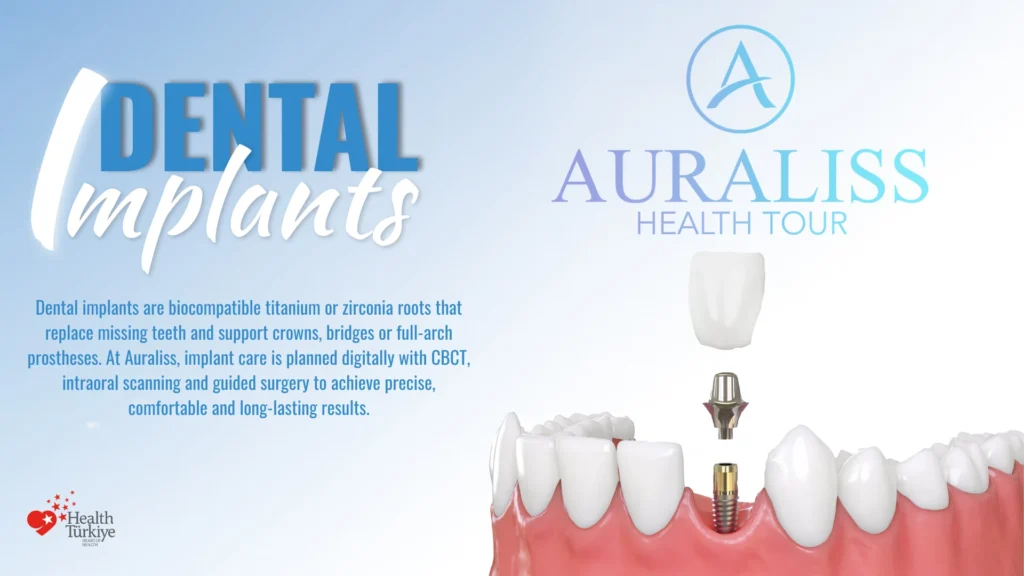
Auraliss Health, powered by Attelia Oral & Dental Hospitals, offers advanced dental implant treatment in Antalya. Patients also receive long-term aftercare support in UK, Norway and Germany. Dental implants are a reliable way to replace missing teeth and restore your smile and chewing function.
At Auraliss, implant treatment is planned as a full rehabilitation process, not a single procedure. Each case is designed with 3D CBCT scans and digital impressions. This helps placing the implants accurately and supports stable healing.
For international patients, care continues after you return home. Local aftercare clinics in the United Kingdom, Germany, Norway and Turkey provide follow-up checks and small adjustments. This keeps your treatment safe and stable over time.
Dental implants are small titanium or zirconia roots placed into the jawbone to replace missing natural tooth roots. After placement, the implant bonds naturally with the bone through a healing process called osseointegration. This creates a strong and stable base for crowns, bridges and full-arch teeth.
Because implants connect directly to the bone, they work and feel like natural teeth. They help protect the jawbone, maintain facial shape and allow comfortable chewing. Implants can replace a single missing tooth, several teeth or a full dental arch in patients with loose, damaged or missing teeth.
Before any treatment is recommended, the Auraliss medical team carefully checks bone quality, bite alignment and overall oral health. The goal is not only to improve appearance but to create long-term comfort, stability and healthy function.
Dental implant treatment in Turkey has become a preferred option for patients travelling from the United Kingdom and Europe. At Auraliss Health, treatment is organised specifically for international patients who are looking for predictable results, clear planning and long-term support after returning home.
Implant care is delivered in Antalya through modern dental hospitals equipped with digital imaging, guided surgery systems and in-house laboratories. Each case is planned as a complete rehabilitation, focusing on bite stability, bone health and natural appearance rather than short-term cosmetic fixes.
What makes this approach different is continuity of care. After returning home, patients can access follow-up checks and professional support through local aftercare clinics in selected European countries. This structure allows patients to continue their recovery safely without unnecessary travel.
Patients choose Auraliss because we prioritize biological stability over standard solutions. We exclusively use SLA-surface implants, a technology designed to accelerate osseointegration (the fusion of bone to implant) by up to 40%.
This advanced surface structure ensures 40% higher primary stability compared to conventional implants, significantly reducing healing time and increasing treatment security.
Each case is then prepared digitally to match bone structure, facial balance, and dental needs. This combination of superior implant biology and digital planning creates natural-looking and reliable results.
All treatments are performed in modern dental hospitals in Antalya using internationally recognised implant systems and custom-made restorations. After treatment, patients can receive free follow-up care in certain points in UK, Norway and Germany. This allows regular checks and professional support without travelling back to Turkey.
Auraliss Health powered by Attelia Oral & Dental Hospitals
Dental implant treatment is not one single procedure. The right option depends on your bone level, how many teeth are missing and your bite structure. Below are the most common solutions explained in a simple and patient-friendly way.
Used when only one tooth is missing. The implant replaces the root and is finished with a ceramic crown that matches your natural teeth in colour and shape.
Recommended when several neighbouring teeth are missing. Two or more implants support a fixed bridge, giving strong chewing function without removable dentures.
In selected cases, an implant can be placed at the same time as tooth extraction. This may shorten the total treatment time and help protect the bone.
When stability allows, fixed temporary teeth can be placed on the same day. Final teeth are added after healing, but you often leave with a functional smile.
Designed for loose or missing teeth. A few implants support a fixed bridge that restores full chewing function and a natural smile.
For severe bone loss, zygomatic implants may offer a fixed solution. Snap-on implant dentures are a more affordable option that still improves stability.
All-on-6 dental implants are a full-arch solution designed for patients with multiple missing or failing teeth who want fixed teeth rather than removable dentures. Six implants are strategically placed to support a full set of upper or lower teeth.
Compared to other full-arch solutions, All-on-6 can offer increased load distribution and stability in patients with suitable bone structure. The exact number of implants is determined after CBCT imaging and clinical assessment to ensure long-term success and comfortable function.
Dental implant treatment at Auraliss is planned as a clear and structured journey. Each stage is designed to support comfort, healing and long-term results.
You start by sending your dental photos or X-rays online. Your case is reviewed by the medical team and your personal treatment plan is prepared.
CBCT scans and digital impressions are taken. Implant placement and required extractions are completed.
The implants bond naturally with the bone to create a strong and stable foundation.
Your final ceramic teeth are placed. Follow-up care continues through European aftercare clinics.
Most implant treatments heal smoothly. If you have a concern during healing, you are not left on your own. Our team stays available and guides you step by step.
Small checks and adjustments can be handled through local aftercare clinics in selected European countries. This helps you stay safe and stable without extra travel.
Your treatment trip is organised as a complete journey. Key details are planned before you arrive so you can focus on comfort and recovery.
Airport to hotel and clinic transfers, with a clear schedule for each day.
CBCT scans and digital impressions to plan implant placement safely and accurately.
Temporary teeth when suitable, plus ongoing aftercare support after you return home.
Your exact plan depends on your case and is confirmed after medical review.
The cost of dental implant treatment varies from patient to patient because each case requires a personalised medical plan. Rather than offering standard pricing, treatment is designed around clinical needs and long-term stability.
Several factors influence the overall treatment cost:
For full mouth dental implants in Turkey, treatment is planned as a complete rehabilitation process. This approach prioritises safety, accuracy and long-term results rather than focusing on short-term pricing alone.
Auraliss Health powered by Attelia Oral & Dental Hospitals continues to support you after you return home. Follow-up checks, small adjustments and long-term monitoring are available through our local aftercare clinics.




Turkey is one of Europe’s leading destinations for dental implant treatment. The country offers modern dental
hospitals, experienced surgical teams and internationally accredited clinics. High patient volumes help clinics
maintain high standards while keeping treatment more accessible.
Auraliss Health powered by Attelia Oral & Dental Hospitals operates in Antalya, one of Turkey’s main medical tourism centres. The city offers modern dental hospitals, digital laboratories and internationally recognised implant systems.
Many patients researching dental implants in the UK also explore treatment options abroad. This is usually related to treatment availability, waiting times and the structure of private care rather than dissatisfaction with local dentistry.
Dental implants are generally not routinely covered by the NHS. In rare medical cases, implants may be considered, but most patients are referred to private treatment. Eligibility criteria are strict, and waiting periods can be long. Auraliss Health has no affiliation with the NHS. Patients who travel for treatment do so privately and by choice, seeking a structured and timely care pathway.
Private implant treatment in the UK can vary depending on clinical complexity, laboratory costs, surgical time and location. Full mouth treatments often require multiple stages and extended timelines, which can affect overall planning and availability.
Patients who choose treatment in Turkey often value clear treatment planning, shorter treatment timelines and integrated care. Digital planning, in-house laboratories and coordinated aftercare allow the entire process to be organised before travel. Continued support through European aftercare clinics adds reassurance once patients return home.
Every implant treatment at Auraliss is digitally planned before surgery begins. This allows safer placement and stronger long-term results.
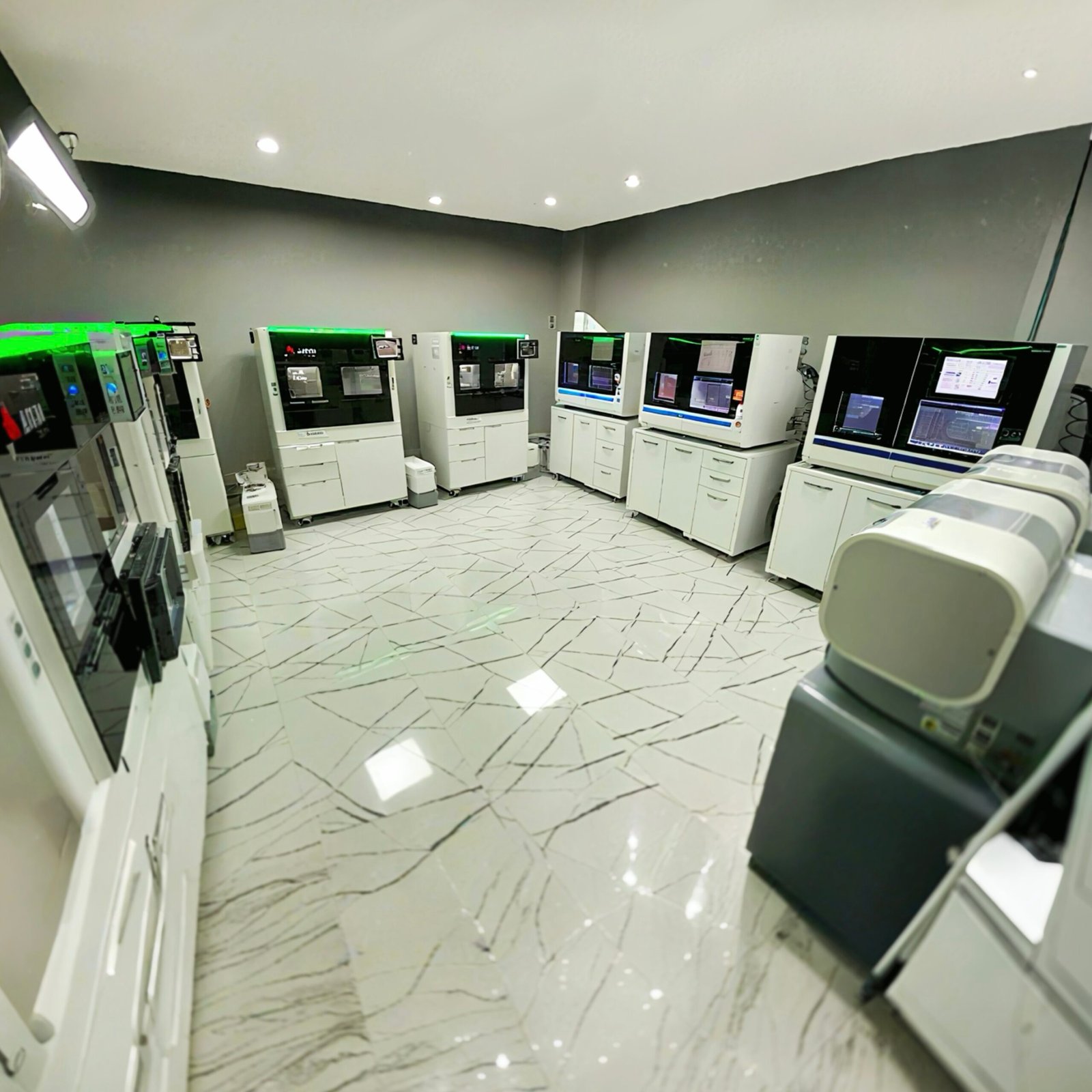
After implant placement, mild swelling or tenderness may occur for a short time. During healing, patients should eat soft foods, keep good oral hygiene and avoid smoking to support proper bone healing. Personal aftercare instructions are provided for each patient.
Local aftercare clinics monitor your healing progress and help keep your implants stable and comfortable over time.
Dental implants are designed as a long-term solution for missing teeth. When properly planned, placed and maintained, implants can last for many years and often decades.
Longevity depends on several factors:
At Auraliss Health, implant treatment focuses on long-term stability. Digital planning, guided surgery and continued aftercare support help protect implant health over time.
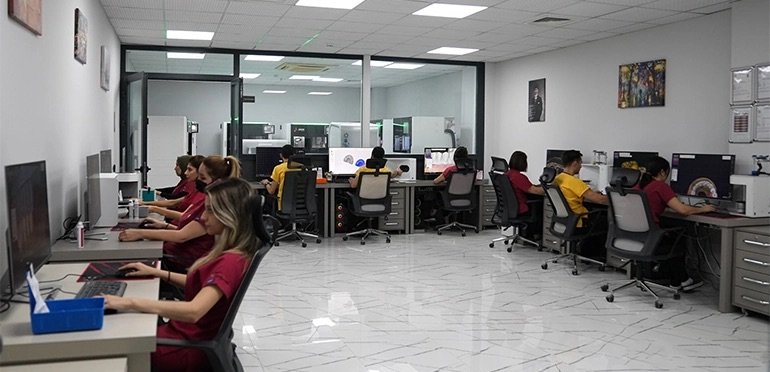
We use premium implant systems and ceramic materials selected for strength, safety and long-term comfort.












Watch real patient stories and smile transformations treated through Auraliss Health powered by Attelia Oral & Dental Hospitals. These videos show real treatment journeys and real results.
Send your photos or dental X-rays online and receive your personal treatment plan within 24 hours. There is no obligation to continue.
Each treatment plan is reviewed by experienced dental professionals before your visit. Bone level, bite balance and medical history are carefully checked.
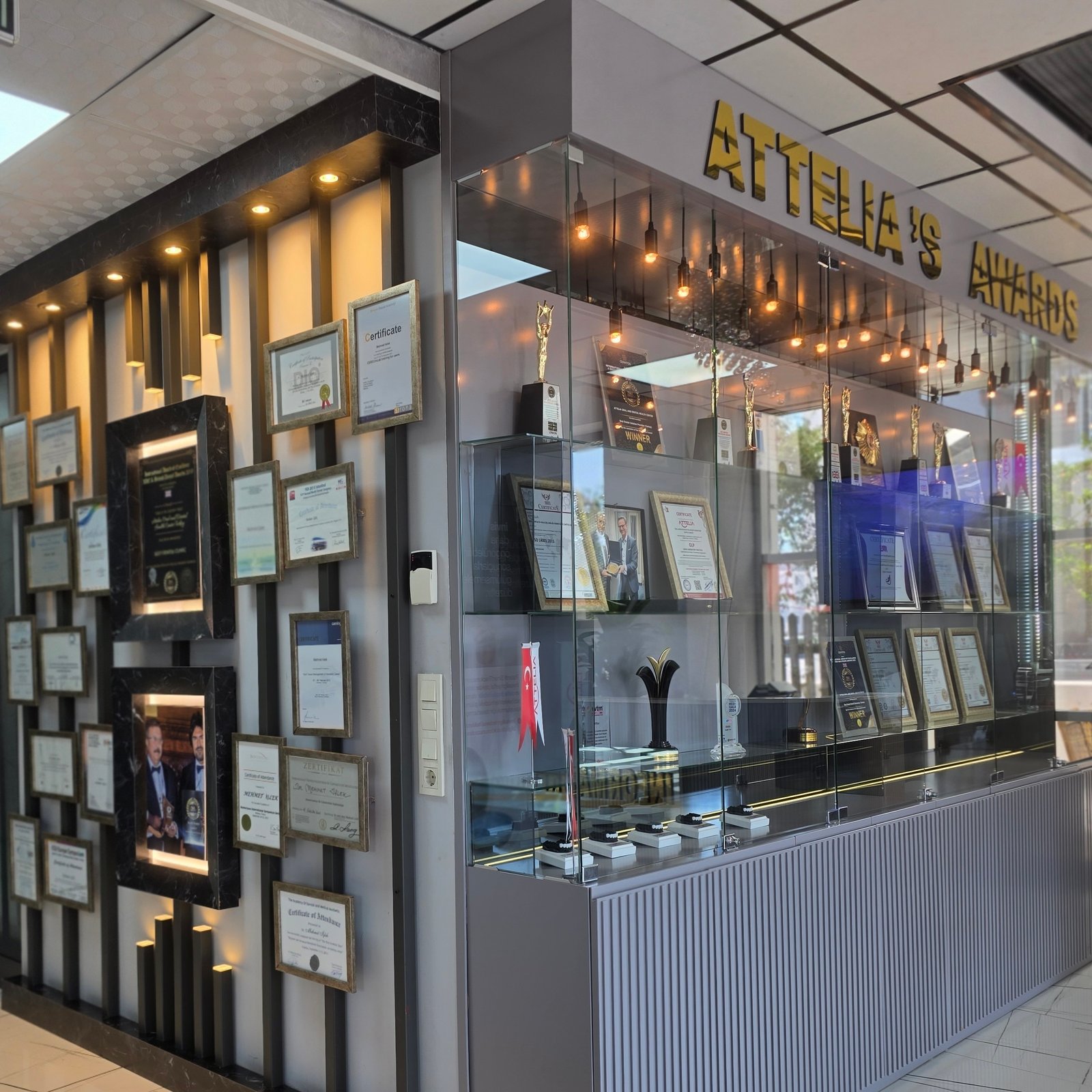
Antalya is one of the main medical tourism centres in Turkey for advanced dental implant treatment. The city offers modern dental hospitals, digital laboratories and internationally recognised implant systems.
Auraliss Health powered by Attelia Oral & Dental Hospitals provides implant treatment in Antalya using a full rehabilitation approach. Each treatment plan is prepared digitally to ensure long-term stability, comfort and natural-looking results.
Patients researching dental implants in Turkey often look for:
The exact treatment plan is determined after digital CBCT imaging and personalised medical review.
Full mouth dental implants are designed for patients who have loose, damaged or missing teeth and want a fixed solution instead of removable dentures.
This type of treatment is commonly chosen by patients who:
Each treatment plan is created individually after CBCT imaging, digital impressions and medical review.
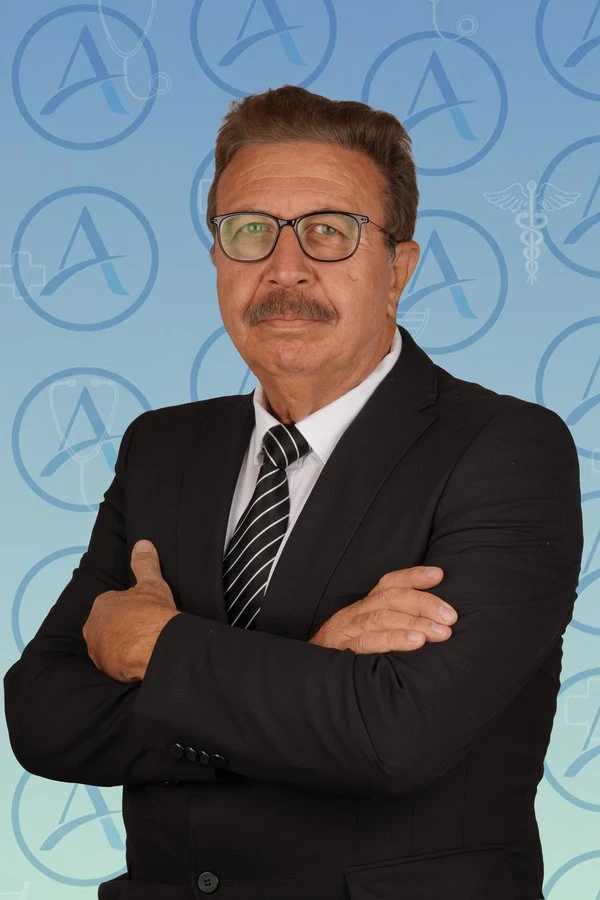
Founder of Auraliss Health & Medical Director
Dr. Mehmet İşlek is one of the most experienced and innovative dentists in Antalya, with a career spanning over four decades. Building on this long-standing clinical expertise, he founded Auraliss Health as an international health tourism intermediary brand to extend the same high medical standards of care to patients from global destinations.
A graduate of Dicle University Faculty of Dentistry (1982), Dr. İşlek is the medical director of Auraliss Health and the owner of Attelia Oral and Dental Health Centre, a fully authorised and Ministry-licensed dental hospital. His clinical leadership ensures that all treatments coordinated through Auraliss Health meet international medical standards and ethical guidelines.
Languages: English, Turkish · Expertise: Implant Dentistry, Aesthetic Dentistry, Prosthetic Rehabilitation
